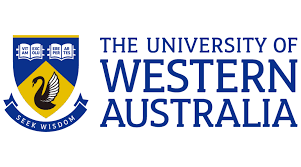University of Western Australia: New research to protect Perth’s woodlands
A new study led by The University of Western Australia has highlighted the critical steps required to preserve one of Perth’s most biodiverse ecological communities, under threat from urban expansion.
The findings, published in the Australian Journal of Botany, provided a list of key recommendations for environmental researchers, planners and managers to conserve the globally important Banksia Woodlands on the Swan Coastal Plain in southwestern Australia.
The Banksia Woodlands ecosystem, iconic for the presence of two ancient species of banksia, is a federally listed Threatened Ecological Community and one of the world’s 36 biodiversity hotspots.
“The review really highlighted how incredibly biodiverse these woodlands are and how much we still have to learn, especially for effective restoration and rehabilitation that will be essential in the coming decades to conserve Banksia Woodlands.”
Dr Alison Ritchie
A research team, led by Dr Alison Ritchie from UWA’s School of Biological Sciences and Dr Lauren Svejcar from Murdoch University, completed a comprehensive scientific review of the current ecology, conservation and urban development of the unique ecosystem.
They compared this to the previous review in 1989 to examine the scientific advances made in understanding the composition, processes and functions of Banksia Woodlands and its unique species over the last 30 years.
The team found the expansion of the Perth metropolitan area continued to affect the ecosystem and restoration initiatives such as inter-seed farming and on-ground management was required to protect the woodlands.
Dr Ritchie said there had been a lot of research conducted on the woodlands in the past 30 years but much was still unknown about the region.
“Identifying research priorities for the woodlands is critical for their conservation and management,” Dr Ritchie said.
“The review really highlighted how incredibly biodiverse these woodlands are and how much we still have to learn, especially for effective restoration and rehabilitation that will be essential in the coming decades to conserve Banksia Woodlands.”
Dr Ritchie said Perth was just one example of an urban area undergoing the challenge of balancing increased urbanisation pressures and conservation of biodiversity.
“Perth is representative of many cities sitting within global biodiversity hotspots where rapid urban development has resulted in extensive loss of native ecosystems,” Dr Ritchie said.
“A joint approach by researchers, governments, non-government organisations, community and Noongar people, and private businesses is critical to combine knowledge and overcome management challenges.”
The research team also included collaborators from Edith Cowan University, Murdoch University, and the WA Department of Biodiversity, Conservation and Attractions.

